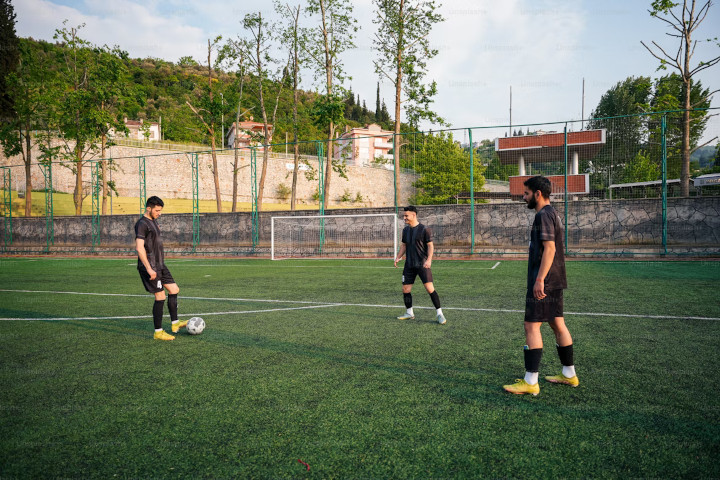How Player Fatigue Affects Match Performance Over a Season
All athletes know what it's like to be tired after a hard game. But after a lengthy season, that tiredness can develop into something worse: fatigue. When players start to lose their edge, it can affect how well the whole team plays. This article talks about how fatigue creeps up, why it matters so much, and what teams can do to stay focused and energised from the first match to the final.
Understanding What Player Fatigue Really Means
Tiredness after a game or practice is different from sports tiredness. Losing energy and performance takes time. Long seasons of travel, pressure, and hard work wear out players. Even top athletes can feel it, whether they play at the local level or in professional leagues followed on sites like https://1xbet.et, where fans watch every match closely.
Mental and physical fatigue exist. Overworked muscles and lack of rest produce fatigue. Player speed, strength, and coordination decline. However, mental fatigue involves staying concentrated and motivated. It occurs when a player is emotionally exhausted or distracted during a game. Both types mingle, making it challenging to perform well.
Training, games, and travel accumulate throughout the season. Even with days off, recovery is difficult. The body heals slower, the mind resets slower. Tiredness disrupts the team's flow, not just one player.

Common Causes of Fatigue During a Long Season
Sports calendars today allow little time for recreation. Many players play tournaments, international matches, and league games nonstop. Sportspeople who travel, change time zones, or play in bad conditions rarely recover. This problem has become more visible as more fans and analysts use mobile tools, such as when people get started with 1xbet apk download to follow team schedules and results in detail.
A busy match schedule is a major source of fatigue. Teams playing every few days don't have enough time to recover. Training intensity may remain high, but performance drops. When players move across countries or continents, travel is crucial.
Sleeping and eating poorly are further issues. Without appropriate sleep or a healthy diet, recovery can take longer. Pressure from coaches, supporters, and the media to perform well increases tremendous mental tension. In team sports like basketball and football, one tired player might affect the pace or balance.
The Link Between Fatigue and Match Performance
Players' performance is clearly affected by fatigue. When the body is fatigued, it takes longer to react. Things that used to be easy to do now take more work. Players could mistake passes, miss shots, or lose their attention at important times.
Here are several symptoms that you are tired during a match:
- More unforced errors, such as poor passes or missed tackles
- Slower sprint speeds and less movement off the ball
- Lower concentration, especially late in the game
- Difficulty maintaining team structure and communication
These little things build up. Statistics often show a reduction in important areas like passing accuracy, sprint distance, or defensive duels won. That can be the difference between a team fighting for the top ranks or having a hard time staying competitive throughout a whole season.
How Teams Try to Reduce Fatigue
Professional teams employ many strategies to refresh their players. Player rotation is typical. To conserve energy for bigger games, coaches rest key players in smaller games. Though fans don't like it, it prevents injuries and burnout.
Recovery sessions matter too. To rest, players may do light training, stretching, or swimming after games. Massage, cold baths, and compression therapy are common in clubs. Sleep and proper diets speed healing. Protein-rich, vitamin-rich diets help individuals heal faster, say nutritionists.
Technology has helped, too. GPS trackers and smart devices track players' distance, speed, and heart rate as they work hard. This information helps coaches adjust training and prevent overtraining.
The Role of Mental Recovery and Motivation
Fitness is only half the battle. The mind needs time to heal and balance. Mental strain drains players. People lose confidence and make more blunders. Poor performance, pressure from fans, or personal concerns might cause this.
Coaches and psychologists are focusing on performance. Mindfulness, breathing, and teamwork can alleviate mental tiredness. Many sportsmen use mental coaches for stress management and goal-setting. Teams are more motivated when they're united and encouraged.
Perspective matters too. Too much online criticism of sports betting and fan expectations, especially from responsible gambling groups, can stress players. Staying psychologically strong allows them to prioritise teamwork and quality.
Final Thoughts
It's normal to get tired during a lengthy season, but how you deal with it is what matters. A team that knows how to balance work and rest can be powerful, smart, and sure of itself until the last game. Players, coaches, and medical personnel all need to work together to establish the right balance between rest and work. In the end, managing your energy isn't just about lasting longer; it's also about playing better, remaining healthy, and having fun from the beginning to the end of the game.